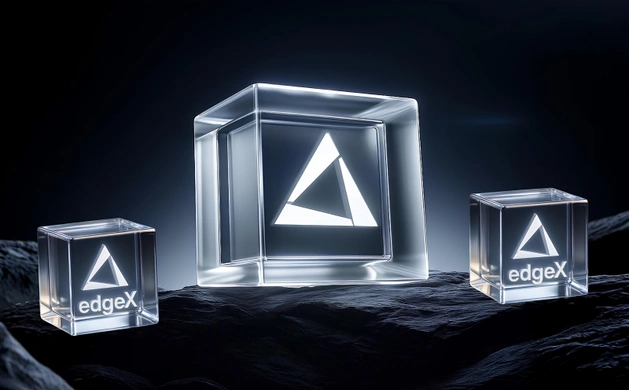ZK-Rollups vs Optimistic Rollups

Summary: Rollups are layer 2 scaling systems that bundle multiple transactions into a single batch, reducing congestion and costs on the main blockchain (typically Ethereum).
They come in two primary types: ZK rollups, which use zero-knowledge proofs for instant finality and privacy, and optimistic rollups, which rely on a challenge period for fraud detection for simplicity.
All popular rollups like Base, Scroll, and Arbitrum are deployed on Ethereum but now there is a surge in demand for both optimistic and ZK-based rollups for non-EVM chains such as Solana and Bitcoin.
What are ZK Rollups?
ZK rollups layer 2 networks that use zero-knowledge proofs to ensure transaction validity while maintaining user privacy. They compress transaction data into succinct proofs, minimizing on-chain storage and significantly lowering gas fees.
Unlike optimistic rollups, ZK networks verify transactions before submission, providing instant finality without requiring dispute mechanisms. The emergence of zk-EVMs promises full compatibility with Ethereum’s smart contracts and tools, thus improving the usability of ZK chains.
ZK rollups leverage advanced cryptographic techniques like zk-STARKs for quantum resistance and zk-SNARKs for efficiency, adapting to different scaling needs. This makes them highly suitable for demanding applications such as crypto gaming, cross-chain bridges, and micropayments.

What are Optimistic Rollups?
Optimistic rollups are the more popular L2 network type as they process transactions off-chain while posting essential data on-chain, assuming validity unless contested within a 7-day challenge window. This design reduces Ethereum mainnet congestion, offering faster and more affordable transactions.
These rollups benefited greatly from the EIP-4844 update and "blobs," a data mechanism that cut network costs by 90%. The Optimistic Virtual Machine (OVM) ensures full compatibility with Ethereum, allowing developers to deploy existing smart contracts with minimal modifications.
Optimistic networks are ideal for applications requiring complex computations, such as governance frameworks, collaborative platforms, and social networks like Farcaster. While the fraud challenge period introduces some latency, they excel in scalability for less time-sensitive use cases.

ZK Rollups vs Optimistic Rollups
Optimistic and ZK rollups both contribute to the improvement of Ethereum, and their differences can be easily identified by examining their technological structures.
- Transaction Validation: ZK rollups use cryptographic proofs for immediate finality, while optimistic rollups assume validity and rely on a 7-day fraud challenge period.
- Performance: Optimistic rollups handle complex computations but have higher latency; ZK ones provide faster finality for rapid processing needs.
- Security: ZKs minimize fraud risks with cryptographic guarantees, while optimistic rollups depend on validators and economic incentives.
- Compatibility: Optimistic rollups are fully EVM-compatible, while ZK rollups require specialized tools but are advancing in compatibility.
- Cost Efficiency: ZK ones compress data efficiently, reducing costs, while optimistic ones benefit from EIP-4844 but remain costlier.
- Use Cases: ZK rollups suit payments, exchanges, and gaming; optimistic rollups excel in governance, social networks, and collaboration.

Which Is Safer?
ZK rollups offer stronger security through cryptographic validation, eliminating reliance on external validators. Optimistic rollups depend on active validators and economic incentives to detect fraud, making them more vulnerable to human error or malicious activity.
While zero-knowledge systems provide robust guarantees, their implementation complexity introduces risks. Optimistic rollups’ simplicity makes them easier to deploy but slightly less secure.
Examples of ZK and Optimistic Rollups
ZK rollups and optimistic rollups each have prominent implementations that demonstrate their capabilities and strengths. Below are key examples of both types of rollups that contribute to Ethereum’s layer 2 ecosystem.
ZK Rollups
ZK rollups leverage zero-knowledge proofs to provide high scalability and security.
- ZKsync: Prioritizes user and developer experience with low fees and fast transactions, supporting native layer 2 smart contracts.
- Starknet: Utilizes zk-STARKs for scalability and security, offering a unique programming language, Cairo, for developers.
- Linea: Developed by ConsenSys, focuses on providing a developer-friendly environment with full Ethereum Virtual Machine (EVM) equivalence.
- Scroll: Aims for native Ethereum compatibility, ensuring complete integration with existing Ethereum applications and tooling.
- Polygon zkEVM: Combines ZK rollup technology with EVM compatibility, enabling developers to deploy existing Ethereum smart contracts without modifications.

Optimistic Rollups
Optimistic rollups prioritize simplicity and compatibility with Ethereum’s existing infrastructure, enabling scalable and efficient decentralized applications.
Central to this ecosystem is the Optimism Superchain, a unified network that integrates multiple rollups for better interoperability. Here are the top ones:
- Arbitrum: Offers high throughput and low fees with multi-round fraud proofs, supporting a wide range of decentralized applications.
- Base: Developed by Coinbase, focuses on providing a secure, low-cost, developer-friendly platform for decentralized applications.
- Optimism: Emphasizes simplicity and EVM equivalence, facilitating easy deployment of Ethereum-based applications with minimal changes.
- Blast: Emerging as a versatile rollup solution, aiming to support diverse applications with a focus on scalability and user experience.
- World Chain: Developed by World it targets gaming and metaverse integrations, offering high scalability and low latency to support complex virtual environments.
- Taiko: Strives to provide an Ethereum-equivalent rollup experience, focusing on decentralization and permissionless network participation.

Ethereum Rollups Statistics
Optimistic rollups currently dominate layer 2 activity:
- Bridged Value: Optimistic rollups bridged $186.4 billion compared to $20.8 billion for ZKs.
- Total Value Locked (TVL): Optimistic rollups reached $7.89 billion, with Base ($3.82 billion) and Arbitrum ($3.27 billion) leading. ZK rollups combined for $1.04 billion, led by Scroll (up 1,103.6% this year) and Linea (up 634.8%).
- Daily Active Addresses (DAA): Optimistic rollups recorded 1.58 million DAA, driven by Base (1.14 million, up 2,170.4%) and Arbitrum (375,464, up 208%). ZK rollups had 139,145 DAA, with ZKsync Era contributing 43,460.
- Daily Transactions: Optimistic rollups processed 11.28 million transactions, led by Base (7.77 million, up 3,623.8%) and Arbitrum (2.37 million, up 220.1%). ZK rollups managed 553,040, with Starknet handling 132,082.
- Revenue: Optimistic rollups generated $754,700 in revenue, led by Base ($488,200, up 10,286.5%) and Arbitrum ($231,900, up 368.6%). ZK rollups generated $26,200, with ZKsync earning just $7,500.
- DEX Volumes: Arbitrum processed $1.62 billion (up 172.1%), while Base reached $2.13 billion (up 7,746.3%). ZKs like Linea grew 1,030.2%, reaching $30.3 million.

Rollups Beyond Ethereum
Non-EVM chains are also adopting layer 2 rollups or incorporating advanced scalability technologies directly into their layer 1 architectures.
Solana Rollups
Solana is gradually starting to incorporate both optimistic and zero-knowledge rollups. Neon EVM enables Ethereum smart contracts to execute on Solana using optimistic rollup mechanisms, optimizing for high throughput and low latency.
Eclipse allows developers to create modular rollup environments tailored to specific needs, integrating with Solana’s architecture. ZK Compression reduces transaction data size for improved scalability and privacy, making zero-knowledge rollups feasible for Solana’s ecosystem.

Bitcoin Rollups
Bitcoin faces challenges in rollup implementation due to scripting and block size limitations. Sovereign rollups like Rollkit use Bitcoin for data availability, enabling decentralized apps to securely anchor transactions to the Bitcoin blockchain.
BitVM combines SNARK compression with optimistic fraud proofs to achieve scaling without protocol changes. Stacks, while not a rollup, uses Bitcoin’s security for transaction validation and introduces smart contracts by publishing transaction hashes to Bitcoin, operating as a distinct layer.

Bottom Line
Both ZK and optimistic rollups contribute significantly to Ethereum scalability, but their unique characteristics be it for security or general-purpose applicatins is what sets them apart.
The layer 2 market is now being entered by even more new players, like ENS's Namechain and Kraken's Ink, which could intensify competition in the Ethereum scaling race.
Could these rollups and advancements serve as a catalyst for the long-awaited ETH super-cycle? We expect to find out in early Q1 2025.
%25201%2520(1).webp)
Written by
Emily Shin
Research Analyst
Emily is passionate about Web 3 and has dedicated her writing to exploring decentralized finance, NFTs, GameFi, and the broader crypto culture. She excels at breaking down the complexities of these cutting-edge technologies, providing readers with clear and insightful explanations of their transformative power.


%2520(1).webp)

.webp)
.webp)
%2520(1).webp)



